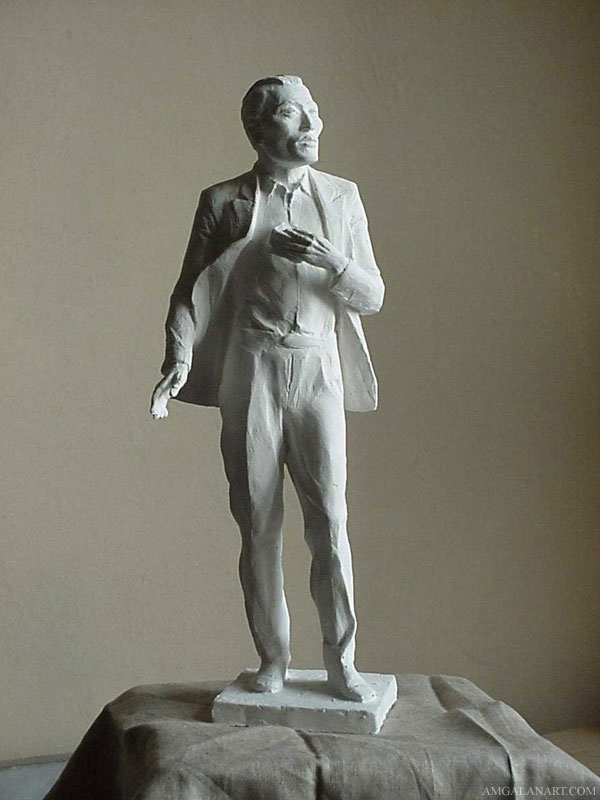Begziin Yavuukhulan
Begdsiin Jawuuchulan (Mongolian Бэгзийн Явуухулан; * 1929, † 17 February 1982 ) was a Mongolian writer and is the preeminent Mongolian poet of the 20th century.
Life
Jawuuchulan was born the son of pastoralists and hunter. After attending the College for Financial Management in Ulan Bator, he worked from 1950 to 1954 as a journalist with the youth newspaper. After studying at the Gorky Literary Institute in Moscow from 1954 to 1959 he was twenty years as editor of the literary magazine "Retired ". Jawuuchulan was a Member of Parliament and chaired several years, the poetry section of the Writers' Association, with the support of young talents was his special concern.
The central theme of the poet who passionately pleaded to his home, a man in his creative relationship with nature and society was. His first two collections of poems published in 1954, still contained poems in the journalistic and didactic style which prevailed in the Mongolian poetry of the 1940s and 1950s, but also already samples of a great talent.
After overcoming the artistic weaknesses Jawuuchulan was very soon to a mature and versatile representatives of Mongolian poetry. Testimony of this are his poems in the volumes " The sound of the Silberzaumes " (1961), " A Day of Poetry " (1963), " The moon, who was sleeping in the steppe " (1965), " The reeds on Lake Char -us "(1965), " noon sky "(1973), " Where the mountain goats live "(1975) and" the love of women "(1982). Many poems were set to music and folk songs.
Work
Jawuuchulan reached an in Mongolian poetry hitherto somewhat rare worldliness, eg in " A Mongolian poem" (excerpt ger 2014) and in the poem "The World " (1977). Also the Poem "Where I was born? " (1961, German 2014), in addition to Daschdordschiin Natsagdordschs "My home " one of the most important examples of Mongolian poetry, or poems like "What? Purpose! " (Eng. 1975) and " The Silver autumn morning " (1977) became very popular. Of particular importance in creating Jawuuchulans takes his love poetry. He designed in pictorial verses the love of woman, but also the love of the homeland and to his people.
He sings about the beauty of nature, the native language of art, in his thoughts poetry, he makes the contrast between the transparent yesterday and today. Its clear, vivid language is committed to folk poetry as the older Mongolian poetry ( Dulduityn Rawdschaa, Natsagdordsch ), but he took ideally also numerous suggestions from the world poetry on. His transfers ( Li Taibai, Goethe, Heine, Garcia Lorca, Yesenin and others) as his own poetry are characterized by high voice culture and sensitivity.
Jawuuchulan is not only the most translated Mongolian poet, he is also considered the most important Mongolian poet of the 20th century. In memory of the poet the Jawuuchulan Festival is now organized, which includes not only the Rawdschaa festival of the most important literary events of Mongolia. His work has had and lasting influence on younger poets such as Mongolian Bawuugiin Lchagwasüren (* 1944), Dandsangiin Njamsüren (1945 - 2002) and O. Daschbalbar (1957 - 1999).
Translations
- In: Whose world ... Poetic document, ( East) Berlin 1967
- In: new German literature, ( East) Berlin, Issue 7/75
- In: Erika and Manfred Taube, shamans and rhapsodies, Leipzig 1983
- In: Klaus Oehmichen, Ten Mongolian poet, Mongolian Notes, Issue 17/2008
- In: There wander the times under the eternal sky. A pearl necklace Mongolian poetry, Leipzig 2014



1.JPG)





